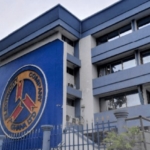
The Electricity Company of Ghana (ECG) has urged the country’s power regulator to introduce a dedicated public lighting tariff amid growing concerns over the current lack of transparency and proper accounting for energy consumed by street lighting across the nation.
Speaking during a meeting with the Public Utilities Regulatory Commission (PURC), Moses Okley, General Manager of Financial Planning at ECG, revealed that the absence of a specific tariff for public lighting has forced the company to rely on an average user tariff to estimate consumption.
“Currently, there is no public lighting tariff,” Mr Okley stated. “So whatever energy is consumed by public lighting, ECG only applies the average user tariff to determine the sales or the consumption of public lighting. We are asking the regulator to come out with a public lighting tariff so that we can properly account for energy consumed by public lighting.”
Mr Okley further explained that while consumers contribute to a public lighting levy, only a fraction of those funds reach ECG.
“The current public lighting levy that all customers pay is a levy that is imposed by the government, and only half of that levy comes back to ECG to cover the energy cost,” he said.
This gap, he noted, has placed an additional financial burden on the utility provider, making it more difficult to sustainably manage electricity distribution for public lighting purposes.
Dr Shafic Suleman, Executive Secretary of the Public Utilities Regulatory Commission (PURC), reassured stakeholders that the commission’s mandate is to strike a fair balance between the financial needs of utility providers and the affordability expectations of consumers.
“The commission’s role is to be an impartial referee, balancing the legitimate need for utilities to raise enough revenues to invest in and provide reliable services with the equally legitimate need for consumers for fair and affordable tariffs,” Dr Suleman said.
He called on the public to actively engage in the ongoing tariff review process.
“I urge you all to participate actively. Your experiences and voices are invaluable; they will ensure that the final tariff structure we approve is nothing but a balanced and credible social contract. One that safeguards your interest, ensures the utilities can serve you better, and supports Ghana’s development.”
